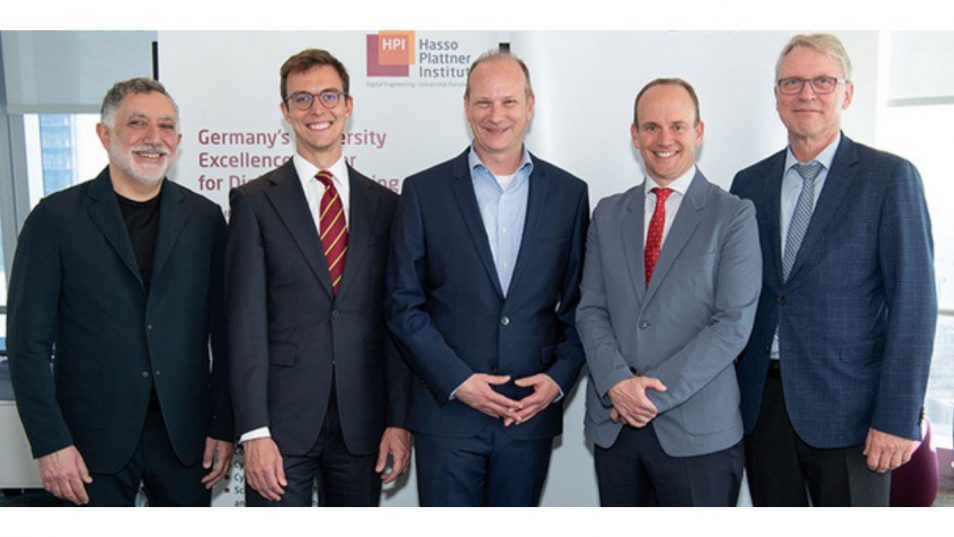HPI and MIT Collaborate Through New Joint Research Program “Designing for Sustainability”
 © Hasso Plattner Institute
© Hasso Plattner Institute
On November 2, Hasso-Plattner-Institute and the Massachusetts Institute of Technology (MIT) signed a collaboration in New York City that aims to tackle global societal challenges as expressed in the United Nations Sustainable Development Goals (SDGs). The program will drive joint scientific research at both institutes in the areas of sustainable design, innovation, computer science and digital technologies, as well as in the translation of research results into practice.
“This cooperation will bring new opportunities for research and for our students,” says Christoph Meinel, professor and managing director at HPI, “It will give impulses to academia as well as into practice. At the same time, it will closely connect PhD students of both institutions through joint research in workshops and exchange programs.”
The collaboration will be administered by the MIT Morningside Academy for Design (MAD), the Institute’s new hub for cross-disciplinary education, research and innovation, which is housed in the MIT School of Architecture and Planning and will ensure the program’s reach across MIT. MAD and HPI will oversee the research funding application process as well as other activities of the program.
Research will be undertaken in the areas of basic and applied design thinking and innovation. Applied design thinking research will focus primarily on topics from among the 17 SDGs, including health, education, energy, and climate action. Innovation research is targeted on the creation of high-impact products and startups (product and venture design) that translate research into practice.
“Alongside artificial intelligence, design research is an key driver of innovation in sustainability,” says Ralf Herbrich, professor and managing director of HPI, who is also a member of the steering committee. “Bringing talented PhD students of our two institutions together that are committed to the SDGs will foster breakthroughs in this societally very important area.”
The research collaboration is supported by the Hasso Plattner Foundation and set up over eight years, with an interim evaluation after four years. The funded program will entail semi-annual research workshops, quarterly virtual seminars and an annual student exchange between both institutes.
Read the full article on the HPI website.
